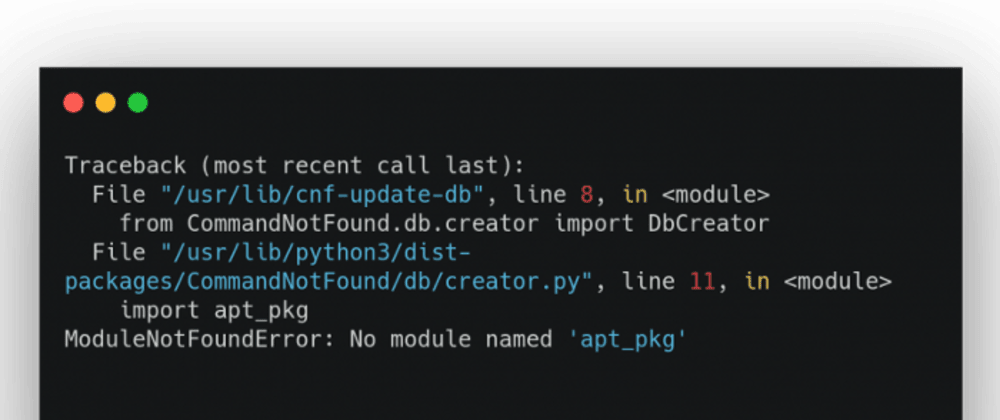

- Python processing nodebox install ubuntu command generator#
- Python processing nodebox install ubuntu command full#
- Python processing nodebox install ubuntu command software#
- Python processing nodebox install ubuntu command free#
The beautiful headers and footers are generated in Core Image with artwork from Ludivine Lechat (ludivinelechat at ). Links to a few other applications for generative art. Mark Polishook is developing a bridge from SuperCollider to NodeBox. Once you know Processing, you know NodeBox. Processing is a Java learning environment that has dynamic and 3D functionality. The idea of a state machine, and most of the command set, is adopted from Processing, an open project initiated by Ben Fry and Casey Reas. As such, it is easier to understand by people that have no experience in programming.
Python processing nodebox install ubuntu command generator#
Python processing nodebox install ubuntu command full#
Although it has a limited set of commands, NodeBox has full Python support, making it a useful tool for advanced Python programmers as well. Sint-Jozefstraat 35, B-2018 Antwerp, Belgium ( map)įrederik at | tom at organisms.be | lucasnijs at įor questions about the cross-platform Qt version:įor citations you can use the following form:įrederik De Bleser, Tom De Smedt, Lucas Nijs (2002).
Python processing nodebox install ubuntu command free#
If you have a question about NodeBox, feel free to contact us: NodeBox is being developed by Frederik De Bleser and Tom De Smedt. We currently recommend using Subversion to grab a copy: svn co nodebox.
Python processing nodebox install ubuntu command software#
The software is open source and available under the MIT license. Installing the NodeBox module: If you want to use NodeBox from the command line, you will have to install it. NodeBox has been online since 2002 (see also the NodeBox research project site). It is essentially a learning environment and an automation tool. The application targets an audience of designers, with an easy set of state commands that is both intuitive and creative. In case of Enthought, it has it`s own Package Manager where it has most of the libraries you need and you can install them there without using pip or anything else.NodeBox allows you to create visual output with programming code. In order to install the libraries for these distributions, once you run the distribution, go to the ipython console and write !pip install libraryname

Now, if you are using a distribution like Aanaconda or Enthought, there is a good chance that the libraries that you are installing are not going to be added to the libraries that those distributions use. These have helped me to install all the libraries that I need. Sometimes, for reasons that I don`t know, during the package installation process, Linux blocks access to the Python so try these as well: sudo apt install python-librarynameĪnd for Python 3.5 sudo apt install python3-libraryname Now assuming you just have an IDE that is connected to Ubuntu`s default Python versions, you can use the terminal to install your packages:įor python 2.7 use pip install librarynameįor python 3.5 use pip3 install libraryname This is important to pay attention to because once you are trying to install a package/library, you need to know which Python it is being installed to. In other words you do not have a distribution like Anaconda or Enthought which install their own Python versions. Let`s say you only installed Spyder from Ubuntu app store or installed Jupyter. Now based on the IDE you are using there are several ways to do this. Ubuntu 15 and older come with Python 2.7 and Ubuntu 16.04 comes with both Python 2.7 and 3.5. It depends on the Ubuntu version and the IDE you are using. The last command is just for safety there might be a Python 2 PIP installed as /usr/bin/pip. It can still be installed with sudo apt-get install python3-setuptoolsĪfter this, pip is the Python 3 version of PIP, instead of pip3. PIP has some limitations compared to APT, but it does always fetch the latest version of a package instead of the one that the Ubuntu packagers have chosen to ship.ĮDIT: to repeat what I said in the comment, pip3 isn't in Ubuntu 12.04 yet. To fetch the PyGame package from PyPI and install it for Python 3. To install it, then sudo pip3 install pygame The other option is to use PIP, the Python package manager: sudo apt-get install python3-pip This only works for packages that are shipped by Ubuntu, unless you change the APT configuration, and in particular there seems to be no PyGame package for Python 3. To use the Debian/Ubuntu package manager APT.

There are two nice ways to install Python packages on Ubuntu (and similar Linux systems): sudo apt-get install python-pygame


 0 kommentar(er)
0 kommentar(er)
